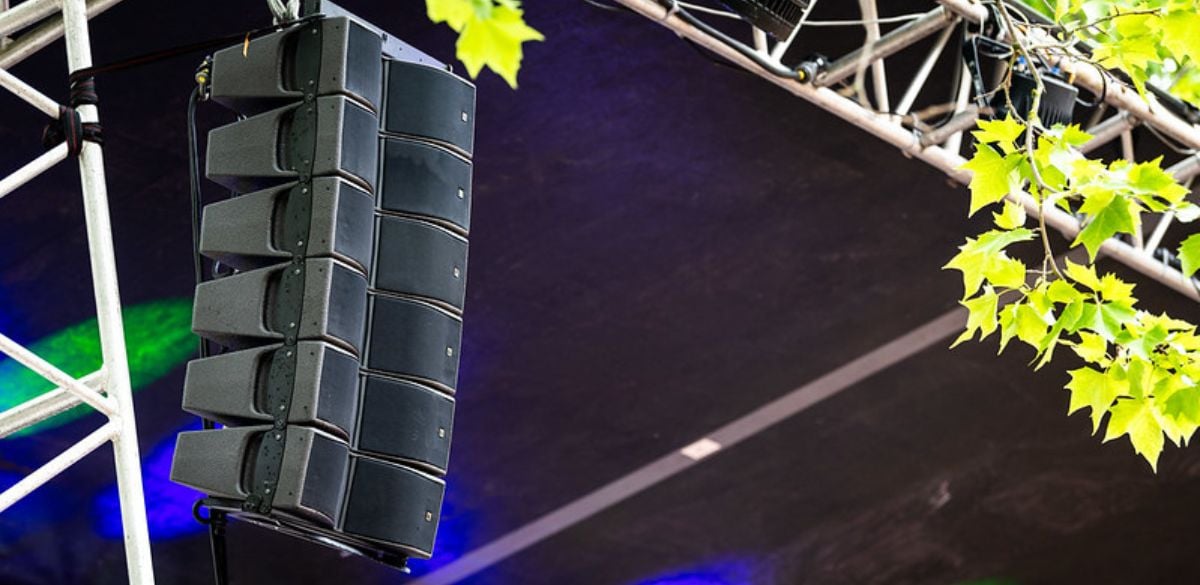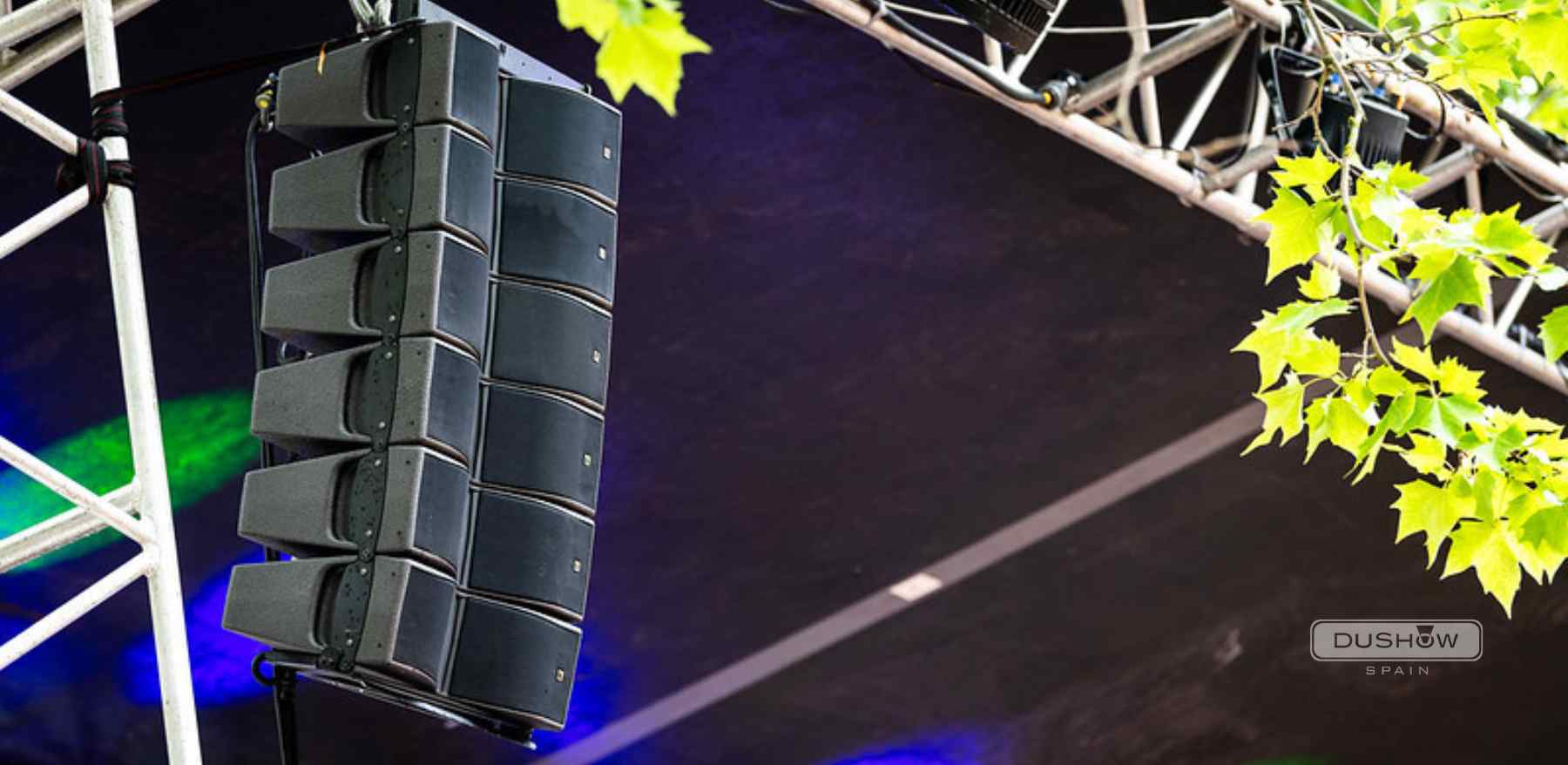Dushow Spain is now Novelty Spain
10 tips to manage your event’s professional sound system
 When it comes to successfully organizing an event, the sound system is a crucial factor. If your audience doesn’t hear what they are supposed to at any time, your message won’t reach them. What’s more, the “clean”, high-quality sound reproduced will make your event seem professional, and organized by experts in the field.
When it comes to successfully organizing an event, the sound system is a crucial factor. If your audience doesn’t hear what they are supposed to at any time, your message won’t reach them. What’s more, the “clean”, high-quality sound reproduced will make your event seem professional, and organized by experts in the field.
Want to know how to get a professional sound system for events, and enjoy high-quality sound? Read on to find out!
Before we get started, here’s a video that reviews the main items to consider for the management of a professional sound system at your event.
Keys to getting clean sound at events
If the goal is for your message to reach your audience as clearly, quickly and effectively as possible, you must ensure that the sound from the professional event sound system is as clean as possible.
Clean pick-up
At an event, the first step to getting clean sound with a professional sound system is clean pick-up. In sound studios, voices are recorded in spaces with no ambient noise, using large-diaphragm microphones that can pick up all the vocal peaks. But, such a scenario would be unusual at an event.
Choose the pick-up system (microphone) best-suited to the ambient noise and speakers’ vocal capacity. Reference has been made to the various polar diagrams available on the market, and the most common types of microphones. Sometimes, it can be beneficial to alter the visual aesthetics by using a headset microphone.
Reduce ambient noise
Choose spaces that are physically insulated from other noisy ones: your site should have thick walls, and be far from noise sources such as hospitality facilities, high-traffic areas, etc.
Use all of the elements
Focus the audience’s attention on the event, not what might be happening around them. If you use good lighting, video projection, stage and/or scenography to focus the audience’s attention on the speaker, you will turn that subjective focus into better sound attention. At the same time, this helps “clean” any noise out of the sound perception.
Monitor the volume
Don’t be fooled into thinking that more volume means fewer problems. The opposite can be true. If the only resource you have to focus the audience’s attention is to increase the volume, you can end up causing the opposite effect: the higher the volume, the more noise, and the more noise, the less clean the sound.
Care for the human voice
Get the frequency response of the amplified sound to be as close to the natural human voice as possible. Any reduction in the frequency response (less treble, less bass, even less dynamic range) can cause the audience to stop paying attention. Work with professionals who know how to care for voices and use top-tier professional sound systems.
Venues matter
The “dryer”, and less reverberant a space, the better. It is easier for engineers to recreate the feeling of volume and sonorous space in dry settings than it is to “reduce” those settings in reverberant spaces. Reverberant spaces do not help the audience understand the words being spoken, which actually reduces their overall comprehension.
Respect the dynamics of the speaker
Respect the speaker’s dynamic range. Good speakers can modulate volume differences in their own voices to hold the audience’s attention. Diminishing these differences in volume (which are, technically, differences in dynamic range) also diminishes the capacity to surprise the listener. It is good to have a sound staff who is aware of this and a professional sound system for events.
Don’t overuse the tools
Offer believable sound reproduction. There is a broad array of technical tools that can reduce, for example, the residual noise in a space. It’s fine to use them, but overusing them is detrimental. Just because a tool exists doesn’t mean you have to use it. Leave its use up to the professionals.
Trial and error
Don’t forget that sometimes it takes hours of trial and error to get the best results. The more complex a space, the higher the demands, and the greater the time that is needed to successfully meet all the necessary technical sound system adjustments. Devote enough time to these issues, and always keep them in mind.
Hire reliable professionals
At an event, having a professional sound system requires reliable professionals who know how to use it and get the most from all its features. What’s more, these professionals will be the ones to rapidly solve any technical problem. That is why having the best technicians will save you a lot of trouble.
If you’ve enjoyed this article and found it useful, make sure to subscribe to our channel and visit our blog to not miss out on any essential content on the technical production and organization of virtual, hybrid and face-to-face events.
This article was first published in Dushow Spain, you can read the original Spanish version here.





